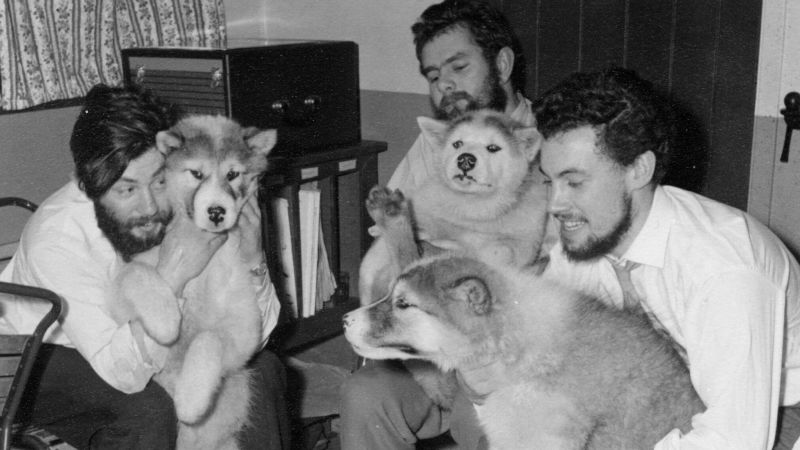The remains of a British researcher who fell into a crevasse on an Antarctic glacier 66 years ago have been recovered, the British Antarctic Survey (BAS) said.
Dennis Bell, then 25, vanished into the ice on July 26, 1959 while climbing the Ecology glacier on King George Island, one of the South Shetland Islands that lie north of the Antarctic Peninsula. He survived the initial fall – estimated to have been 100 feet – but an attempt to rescue him failed, and he wasn’t seen again.
In January, a team from the Polish base on King George Island found his remains and hundreds of personal items among rocks uncovered as the glacier has retreated, the BAS said.
The Polish team carried out an extensive archaeological survey over five days in February, recovering bone fragments and man-made artifacts – including a watch with an engraved inscription, a Swedish knife, radio equipment and ski poles.
DNA samples were matched with Bell’s living siblings David Bell and Valerie Kelly, who were surprised by the discovery.
“When my sister Valerie and I were notified that our brother Dennis had been found after 66 years we were shocked and amazed,” David Bell told BAS. He expressed the family’s gratitude to the British and Polish team for “bringing him home,” saying the discovered had helped them “come to terms with the tragic loss of our brilliant brother.”
Known by the nickname “Tink,” Bell joined the Falkland Islands Dependencies Survey (FIDS) – the predecessor of the BAS – as a meteorologist in 1958, seeking more adventure after a career with the Royal Air Force.

“This discovery brings closure to a decades-long mystery and reminds us of the human stories embedded in the history of Antarctic science,” said BAS director Dame Jane Francis, who added that it was “poignant and profound moment.”
Bell was stationed at a small British base with of only half a dozen men in King George Island’s Admiralty Bay, where the sea ices over for nine months of the year.

On July 26, 1959, Bell and three other men set out on dog sledges to climb the glacier on the island’s peak to carry out survey and geological work, with Bell and surveyor Jeff Stokes departing about 30 minutes before the other group.
The snow was deep and the dogs had begun to show signs of fatigue, so Bell walked ahead to encourage them, but he was not wearing his skis. Suddenly, he disappeared into the ice.
Stokes called down a hole in the ice and was “greatly relieved” to hear Bell answer, according to an account from former BAS Director Sir Vivian Fuchs in Antony Nelson’s book “Of Ice and Men.”
Stokes then lowered a rope almost 100 feet into the hole, told Bell to tie himself onto it, and attached it to the dog sled, in an ill-fated attempt to lift him out, recounted Fuchs.
“Bell had tied the rope through his belt instead of round his body, perhaps because of the angle at which he lay in the crevasse. As he reached the top his body jammed against the lip, the belt broke, and down he went again,” Fuchs said.
Bell never responded to his friend’s calls after that.
Stokes left markers at the site and started making his way down the glacier to find the other team of men. After 12 hours, in deteriorating weather, they eventually returned to the site and determined there was no way he could have been saved.

“Dennis was one of the many brave FIDS personnel who contributed to the early science and exploration of Antarctica under extraordinarily harsh conditions,” said Francis, the BAS Director.
“Even though he was lost in 1959, his memory lived on among colleagues and in the legacy of polar research.”
After being recovered by the Polish team, his remains were taken to the Falkland Islands on the BAS Research Ship the Sir David Attenborough where they were handed to the Coroner for British Antarctic Territory and transported to London.

